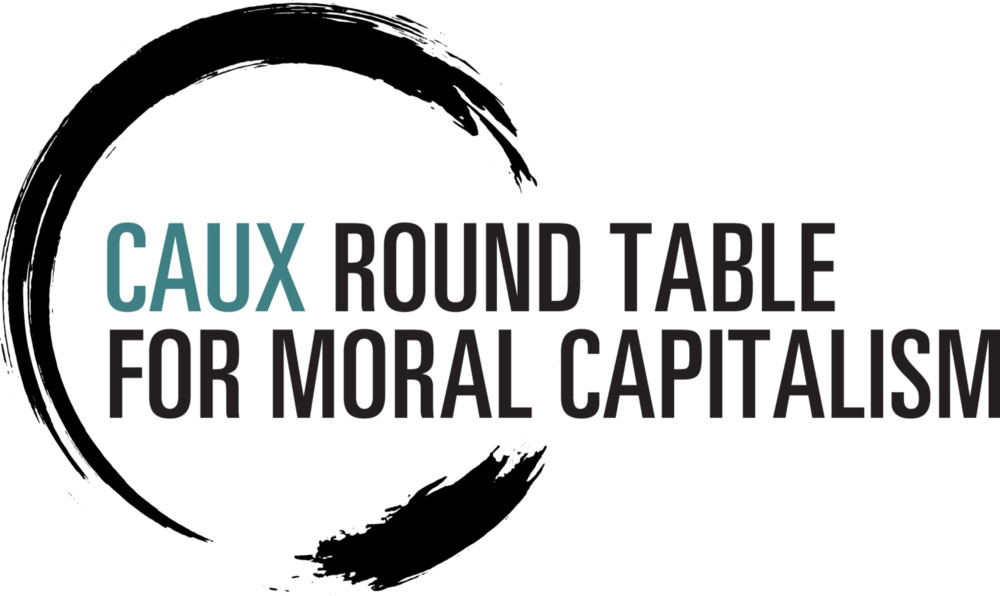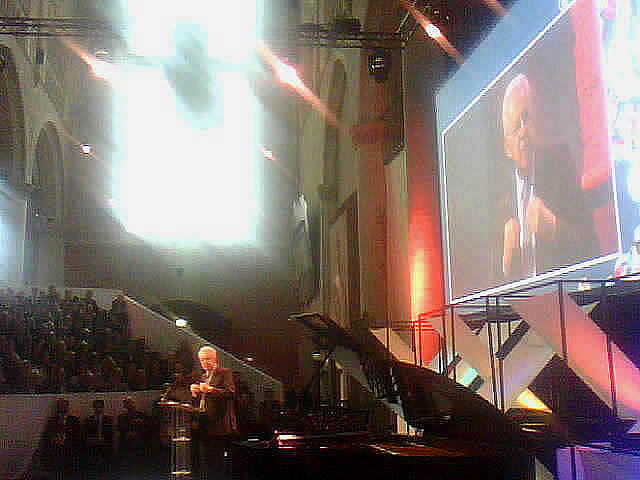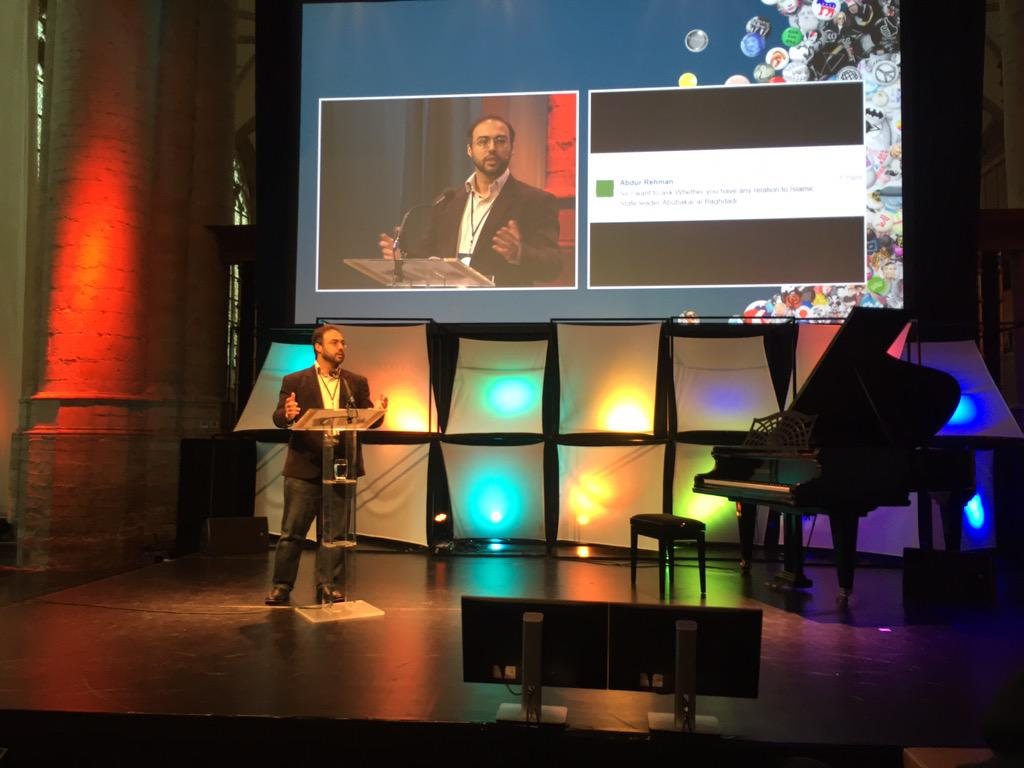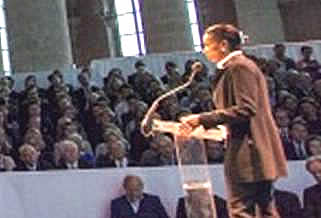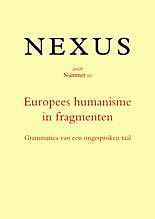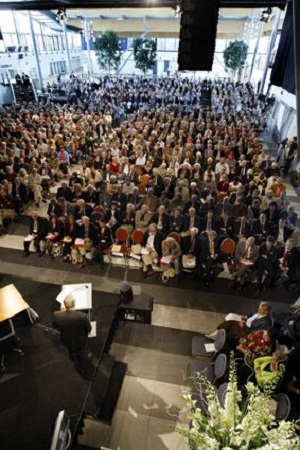Finally, Steiner noted that within mathematics there is no fiction, and that will characterize my problem with mathematics. As a third language, and then in Steiner's view especially towards poetry. Language is the protection against human folly. In contrast to the music language knows progress. As a summary of the poetry he called: poetry is the interaction between sense and sound, and goes beyond everyday thinking.What unites these three values is the fact that we do not know where they come from. In these ways man will make himself immortal, as long ago been said by Dante.
Other speakers: Frank Fukuyama, Adam Zamoyski, Roger Scruton (†12-01-2020), Adam
Zagajewski († 21 March 2021) , Jonathan Israel, Michael Ignatieff and many others.
1. EUROPEAN HUMANISM AND THE MUSE
Nicholas Mann worked on depth research into the life and work of Francesco Petrarca. The most important thing I've inherited, is the image that we are dwarves who sit on the shoulders of giants. These giants are the "idols" of the past, where we sometimes create an ideal of it. Because those "giants" have done and gained much research and knowledge, we as well-educated Westerners have to do much less effort to create the same level to achieve, or even to transcend it.
Lewis Lockwood, a student of Beethoven, began his introduction by saying that Petrarch is quite unknown, and that his Beethoven has a lot more fame. He continued to lay the connection between Beethoven and European humanism. Also, he read a piece of a letter ever written by the composer. Here Beethoven warns against commercialism and exploitation of publishers of the artist. "The human mind can not be sold as a piece of cheese."
All professors brougt their own personality. David Dubal ended all his comments with a joke. The full house could have a good laugh, and it made sphere, but he did not add anything useful to the debate. Finally they came out at the point which is also mentioned earlier by George Steiner: that man wants to make himself immortal through art. There were also briefly talks about the relationship between art and religion. It is noted that artists and performers do not want to explain the deeper meaning behind their works, but that theologians wants gladly to explain how it is with the above observable. What both art and religion are having in itself: it gives hope.
The session ended with a poem by the American-British poet TS Eliot, from Four Quartets:
| |
'So here I am, in the middle way, having had twenty years-
Twenty years largely wasted, the years of l’entre deux guerres
Trying to use words, and every attempt
Is a wholly new start, and a different kind of failure
Because one has only learnt to get the better of words
For the thing one no longer has to say, or the way in which
One is no longer disposed to say it. And so each venture
Is a new beginning, a raid on the inarticulate
With shabby equipment always deteriorating
In the general mess of imprecision of feeling,
Undisciplined squads of emotion. And what there is to conquer
By strength and submission, has already been discovered
Once or twice, or several times, by men whom one cannot hope
To emulate-but there is no competition-
There is only the fight to recover what has been lost
And found and lost again and again: and now, under conditions
That seem unpropitious. But perhaps neither gain nor loss.
For us, there is only the trying. The rest is not our business.'
|
2. A SILENCED LANGUAGE
The second round of discussion began with some faint general presentations of the speakers and their opinion about the decline of values in the twentieth century. Roger Scruton, an eccentric British philosopher who has written on diverse subjects, started the discussion by making a comment about the danger of utopian thinking. Religion can not save us, and a utopian world gives "the idea That we can redeem ours elves here and now." Furthermore, he noted that European humanism consists of two core values, transcendence and reason. According to him, the question was which one we want to emphasize at the conference.
Michael Ignatieff thought it turned out better than was expected with the loss of values. Life has always been difficult. But he thought that there was a lot of noise in the political systems. What he meant was unclear, but Scruton had a solution in the form of culture that keeps the noise out.
Sarah Rosenberg is a multi-talent. She plays piano professionally and was a valuable contribution to the intellectual debate. She was worried about the technological society. In our digital society, the idea of an 'original', as you have with a work of art, disappeared. Instead, we all have copies. Ignatieff is a true realist and modified the observations of Rosenberg. Authenticity has always been a problem. According to him, every generation have to translate the classics for himself and interprete it in a way to learn from it. |
|
3. IDENTITY, PLEASE!
The last part was a debate round with Jonathan Israel, Francis Fukuyama, Avishai Margalit, Bassam Tibi and Adam Zamoyski. Rob Riemen asked them what the unifying factor in Europe was, and what it will be. Historically, religion tied Europe together, which will bind Europe together now? Avishai Margalit clarified why he thinks Europe was not tied by religion. According to him it was the technological revolution that took place in Europe some 250 years ago. At that time no other part of the world one was so advanced. He thought it was too early to say which way Europe will go. But he thought that the states will strengthen mutual. The opinions of the intellectuals on the genesis and the unifying factors of Europe were quite different. According to Bassam Tibi, Europe arose in Charlemagne in the time of Charlemagne when he drove out Islam. |
